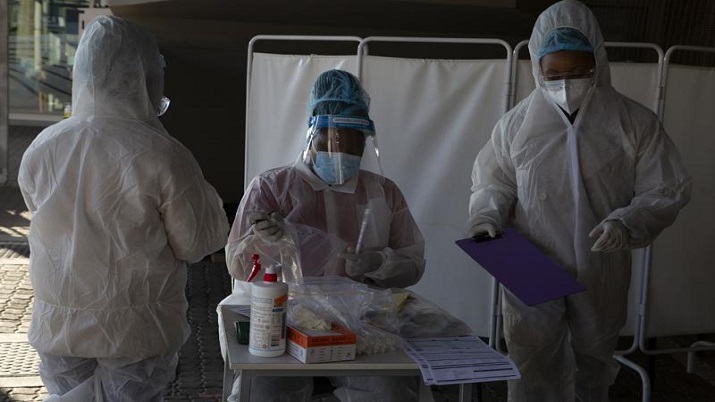
The case was reported in the same part of Guinea where the 2014-2016 Ebola epidemic began, which eventually killed at least 11,325 people.
The World Health Organization (WHO) has said that health officials in West Africa have confirmed the region’s first death due to Marburg virus, a highly contagious disease that causes hemorrhagic fever similar to Ebola. The death was reported in Guinea.
Health officials said they were trying to trace anyone who may have come in contact with the patient who sought treatment in Guaidów.
The case was reported in the same part of Guinea where the 2014-2016 Ebola epidemic began, which eventually killed at least 11,325 people. Earlier this year a much smaller outbreak of Ebola also occurred in the same region near Guinea’s borders with Sierra Leone and Liberia, killing 12 people.
Marburg virus belongs to the same family as Ebola, and has previously spread throughout Africa in Angola, Congo, Kenya, South Africa and Uganda.
According to the WHO, the new West African case was confirmed by a laboratory in Guinea and then by the Institut Pasteur in nearby Senegal.
“The potential for the Marburg virus to spread far and wide means we need to stop it in its tracks,” said Dr. Matshidiso Moeti, WHO’s regional director for Africa. “We are working with health officials to implement a rapid response based on Guinea’s past experience and expertise in the management of Ebola, which is similarly transmitted.”
Marburg outbreaks begin when an infected animal, such as a monkey or fruit bat, transmits the virus to humans. The virus then spreads from human to human through contact with the body fluids of the infected person.
Symptoms of Marburg include high fever and muscle aches, and in some patients the latter bleeds through body openings such as the eyes and ears. There is no approved drug or vaccine for Marburg, but rehydration and other supportive care may improve a patient’s chances of survival.
Case fatalities have been as high as 88% in previous outbreaks, but the WHO said this figure varied, depending on the strain and how cases were managed.
(with AP input)
Read also: Pentagon to require COVID vaccine for all US military servicemen by September 15
Read also: Canada reopens its border to vaccinated US visitors
.